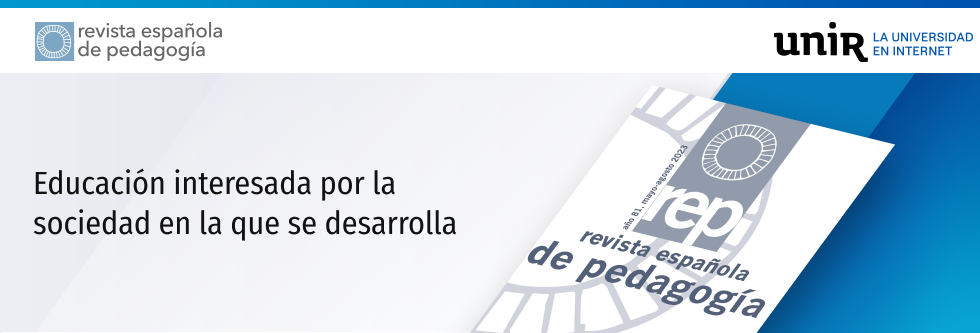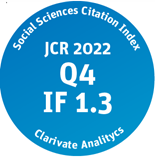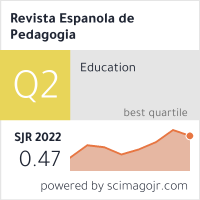Abstract
This article analyses the characteristics of musical intelligence within the framework of the multiple intelligences model with the aim of moving forward the relationship between the development, learning, and optimisation of these intelligences. The skills and capacities that are developed in interaction with musical intelligence are analysed as are the main lines of teaching work in schools, especially in the case of people with a specific educational need. Similarly, a brief overview of the proven effects of musical practice and the development of musical intelligence is provided, identifying some of the cortical and subcortical areas involved in these intelligences and the modifications that musical training generates, with some suggested criteria about its pedagogical applications.
Cite this article as: García-Vélez, T. & Maldonado Rico, A. (2017). Reflexiones sobre la inteligencia musical | Musical training for Primary Education graduates in the context of Madrid. Revista Española de Pedagogía, 75(268), 451-461. doi: 10.22550/REP75-3-2017-08.
- Keywords:
- development
- educational needs
- musical intelligence
Referencias | References
Brown, J. D. (2001). Using Surveys in Language Programs. Cambridge: University Press.
Davis, M. (1990). Miles. Toronto: Simon and Schuster.
Ferrándiz, C., Prieto, M., Bermejo, M., & Ferrando, M. (2006). Fundamentos psicopedagógicos de las inteligencias múltiples. revista española de pedagogía, 233, 5-19.
Fonseca-Mora, M., Toscano-Fuentes, C., & Wermke, K. (2011). The relation between Language Aptitude and Musical Intelligence. Anglistik: International Journal of English Studies, 22 (1), 101-118.
Gardner, H. (1983). Inteligencias múltiples. La teoría en la práctica. Barcelona: Paidós.
Gardner, H. (1994). Estructuras de la mente. La teoría de las inteligencias múltiples. Barcelona: Fondo de Cultura Económica. Gardner, H. (1998). A multiplicity of intelligences. Scientific American, 9, 19-23.
Gardner, H. (1999). La inteligencia reformulada: Las inteligencias múltiples en el siglo xxi. Barcelona: Paidós. Gardner, H. (2008). The five minds of the future. Schools, 5, 17-24.
Gardner, H. (2011a). The Theory of Multiple Intelligences: The Battle-Scarred Journey (An excerpt from The theory of multiple intelligences: As psychology, as education, as social science). Discurso de investidura como Dr Honoris Causa por la Universidad Camilo José Cela, Madrid, 29 de octubre de 2011.
Gardner, H. (2011b). Multiple intelligences: Reflections after thirty years. National Association of Gifted Children Parent and Community Network Newsletter: Washington, DC.
Giroux, H. (2001). Los profesores como intelectuales transformativos. Revista Docencia, 15, 60-66. Lacárcer, J. (2003). Psicología de la Música y emoción musical. Educatio, 20-21, 213-226.
Leganés, E. (2012). La música como terapia complementaria en la mejora de la comunicación y el lenguaje autista. Psicologia.com, 16 (1).
Levitin, D. (2008). Tu cerebro y la música. Barcelona: RBA.
Levitin, D. (2014). El cerebro musical: seis canciones que explican la evolución humana. Barcelona: RBA. LOMCE, Ley Orgánica 8/2013 de 9 de diciembre, para la mejora de la calidad educativa. BOE, de 10 de diciembre de 2013, núm. 295.
Mithen, S. (2005). The Singing Neanderthals: The Origins of Music, Language, Mind and Body. London, Weidenfeld y Necholson.
Patel, A. (2003). Rhythm in Language and Music: Parallels and Differences. Annals of the New York Academy of Sciences, 999, 140-143.
Rodríguez-Díaz, E., Ezquerro-Cordón, A., Llamas-Salguero F., & López-Fernández, V. (2016). Relación entre creatividad e inteligencias múltiples en una muestra de estudiantes de Educación Secundaria. Ulu, 2, 7-11.
Schlaug, G., Norton, A., Overy, K., & Winner, E. (2005). Effects of music training on the child’s brain and cognitive development. Annals of the New York Academy of Science, 1060, 219-230.
Schlaug, G., Altenmueller, E., & Thaut, M. (2010). Music listening and music making in the treatment of neurological disorders and impairments. Music Percept, 27 (4), 249-250.
Soria-Urios, G., Duque, P., & García-Moreno, J. (2011). Música y cerebro (II): evidencias cerebrales del entrenamiento musical. Neurología, 53, 739-746.
Toscano-Fuentes, C. & Fonseca-Mora, M. (2012). La música como herramienta facilitadora del aprendizaje del inglés como lengua extranjera. Teoría de la Educación. Revista Interuniversitaria, 24 (2), 197-213. Retrieved from http://revistas.usal.es/index.php/1130-3743/article/view/10361
Citación recomendada | Recommended citation
y Antonio Maldonado Rico, T. G. (2017) . Reflections on musical intelligence. Revista Española de Pedagogía, 75(268). https://www.revistadepedagogia.org/rep/vol75/iss268/13
Licencia Creative Commons | Creative Commons License
Esta obra está bajo una licencia internacional Creative Commons Atribución-NoComercial 4.0.
This work is licensed under a Creative Commons Attribution-NonCommercial 4.0 International License
Palabras clave | Keywords
development, educationalneeds, musicalintelligence





